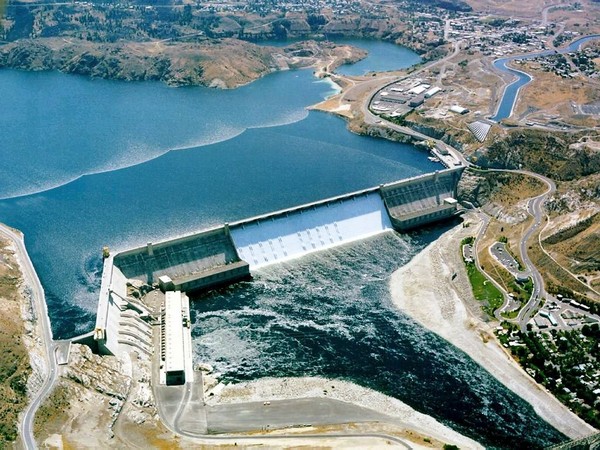
New Delhi: The planned Diamer -Bhasha dam on the Indus River is going to have serious negative ecological consequences even as it would displace millions and destroy their livelihoods. Not just those affected by the project but also those living far away on the southern end of the Indus River in Sindh will be impacted. Yet, the Pakistan government has ignored experts’ warnings and the locals’ protests as it continues to push the project.
The proposed dam in the precarious Himalayan region of Gilgit-Baltistan will have a 4.5 gigawatt hydroelectric power generation plant. It is in a seismically active zone, which makes the dam project a disaster waiting to happen. Amsterdam-based geologist Mustafa Gurgez said “The construction of such a big dam in an active earthquake zone is a suicidal project. There have been more than 900 tremors of 4-magnitude over the last 70 years in the region the dam is planned,” he said.
Notably, the carbon footprint from the operations of the Diamer-Bhasha plant will be as high as any polluting type of coal plant, with additional damages in the form of the impact on the local ecosystem, said hydrology experts Hassan Abbas and Asghar Hussain. “The large amount of water held back would have a devastating impact on the Indus delta, as it would lead to the encroachment of seawater far up the coast. This would be particularly detrimental to mangrove forests,” they said.
The project-affected people have been holding protests against the dam since it was announced in 2006. Besides environmental reasons, the locals said the dam would deprive them of their land and livelihoods. Farmers and fishermen dependent on the Indus River would face dire consequences. A farmer named Gulab Shah, who already lost a large parcel of land to sea intrusion, said “I will lose my agricultural land after the new dam is built.”
Pakistan’s operational high-altitude Tarbela dam has been termed “perhaps the world’s most problem-stricken major dam” as it caused sedimentation, waterlogging and salinity to increase. “With the construction of the Bhasha dam, we fear losing the three districts altogether to the sea. But a lobby wants more dams to be built,” said Muhammad Ali Shah, chairperson of Pakistan Fisherfolk Forum.
The Diamer- Bhasha dam at 922 feet is a high-altitude project in the highly unstable seismic zone in a narrow valley of the Indus River. There are signs of volcanic activity in nearby areas. This makes nearby inhabitants highly vulnerable to extraordinary safety hazards. “Experts who have been studying the Himalayan Tectonic Interface belt for decades are predicting future earthquakes of magnitudes up to M=8.7 in the region, resulting in estimates of over a million casualties,” said California-based Pakistani-American earthquake engineer Saif M. Hussain.
Diamer-Bhasha dam will be detrimental to rare Himalayan wildlife as well as the marine ecosystem in the Indus Delta region. The displacement of the project-affected people would inviolate the protected forest areas. “If settlements are disturbed by the construction of the dam and locals move to the highland to construct their homes, it may threaten the species habitat,” said Muhammad Naeem Awan, National Park Management Office.
The Diamer-Bhasha dam will have direct and indirect negative impacts on a variety of biodiversity parameters, which include forest trees, agriculture, fisheries, as well as endangered animal species. “Once the entire proposed reservoir is submerged, the loss of terrestrial habitat due to vegetation clearing can contribute to habitat fragmentation and degradation, as well as loss of economically important species,” reads a research report by scholars from the US, Pakistan and China.
Despite strong warnings and local protests, Islamabad continued to push the dam project. However, locals have been opposing it fiercely knowing how the project affected people for the Tarbela and Mangla dams were exploited. Close to one million people were displaced by the Tarbela dam. They did not receive compensation and were forcefully driven out by the Pakistani military, revealed a report by US-based Environmental Defence. Moreover, it had a severe impact on local ecology and economy.
Lack of trust in the government remains among the project-affected people. The Islamabad government has been blamed for failing to even compensate for stoves that were provided to the project-affected people. Thus, locals have been opposing the Diamer Bhasha dam for a variety of reasons.“ The indifferent attitude of the government will one day make us rebels. We are not allowed to even speak for our rights,” said Shafiullah Danish, a project-affected person.